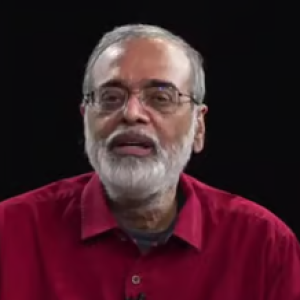
.png) Joseph Maliakan
Joseph Maliakan
.png)
In a significant ruling which will have far-reaching implications in safeguarding the fundamental rights of citizens and a great boost to freedom of speech and ex
The Supreme Court held that the editor's arrest and remand under UAPA were "invalid" as the grounds of arrest were not given to him or his counsel in writing before the arrest. A bench comprising Justices BR Gavai and Sandeep Mehta ordered that Prabir be released, subject to his furnishing surety and bail bond. The Court gave the order pointing out that a copy of the remand application was not provided, thereby violating principles of natural justice.
During the hearings, the judges questioned how the remand hearing was conducted without informing Purkayastha's lawyer in advance and, in effect, without an audience. The Court also observed that the remand order was passed before Purkayastha or his counsel was informed of why he was arrested. The Court had also grilled the counsel for Delhi Police as to why no advance notice was given.
Purkayastha was arrested on October 3, 2023, under UAPA following a series of raids on the offices of NewsClick and journalists associated with the news organisation. The arrest was made in the wake of allegations in an article in the New York Times that NewsClick was being paid considerable sums to carry on Chinese propaganda. NewsClick Human Resources head Amit Chakraborty was also arrested in the case.
According to the First Information Report, NewsClick allegedly received crores of rupees in foreign funds to "disrupt the sovereignty, unity and security of India." The charges included that NewsClick tried to show Kashmir and Arunachal Pradesh as not parts of India, discrediting the government's fight against COVID-19, funding the farmer's agitation against the now withdrawn controversial farm laws and putting up a spirited defence of legal cases against Chinese telecom companies.
After their arrest, both Purkayastha and Chakraborty moved to the Delhi High Court to challenge their arrest. They argued that the arrest and remand were illegal because they were not given the grounds for the arrests in writing, violating the Supreme Court order in the Pankaj Bansal case. The Delhi High Court, however, rejected the argument and held that the Pankaj Bansal judgment does not apply to arrests made under the UAPA, leading to the appeal in the Supreme Court. The Supreme Court quashed and set aside Purkayastha's arrest, the remand order of October 4, 2023, and the Delhi High Court order of October 13, 2023, that upheld the arrest.
Clarifying the scope of the Court's ruling on October 3, 2023, in the Pankaj Bansal vs Union of India case, which said that the Enforcement Directorate (ED) should furnish the grounds of arrest under the Prevention of Money Laundering Act (PMLA) in writing to an accused at the time of arrest, the bench said this should "APPLY IN ALL CASES OF ARREST." "Upon careful perusal of the statutory provisions ...we find that there is no significant difference in the language employed in Section 19(1) of the PMLA and Section 43 B(1) of the UAPA which can persuade us to take a view that the interpretation of the phrase "inform him of the grounds for such arrest" made by the Court in the case of Pankaj Bansal ...should not be applied to an accused arrested under the provisions of the UAPA," the order pointed out.
In this context, the Supreme Court pointed out that Article 22(1) of the Constitution says, "no person who is arrested shall be detained in custody without being informed, as soon as may be, of the grounds for such arrest nor shall he be denied the right to consult, and to be defended by a legal practitioner of his choice." The order further said that "the purpose of informing to the arrested person the grounds of arrest is salutary and sacrosanct in as much as this information would be the only effective means for the arrested person to consult his advocate; oppose the police custody remand and to seek bail. Any other interpretation would be tantamount to diluting the sanctity of the fundamental right guaranteed under Article 22(1) of the Constitution of India."
Commenting on the lapses in procedure followed by the Delhi Police in this case, the Supreme Court said that the copy of the FIR was provided to Shri Akashdeep Khurana, learned advocate representing the accused for the first time on October 5, 2023, and hence till the time of being deprived of liberty, no communication was made to the appellant regarding the grounds on which he had been arrested. "Thus, by the time the advocate engaged by the appellant had been informed, the order of remand had already been passed. Unquestionably, till that time, the grounds of arrest had not been conveyed to the appellant in writing," the order said.
The Supreme Court further said that the arrest memo only contains the reasons for arrest but not the grounds of arrest. "There is a significant difference between the phrases 'reasons for arrest' and 'grounds of arrest' The reasons for arrest are formal parameters." These reasons would commonly apply to any person arrested on a charge of a crime, whereas the 'grounds of arrest' would be required to contain all such details in the hands of the investigating officer that necessitated the arrest of the accused. "Simultaneously, the grounds of arrest informed in writing must convey to the arrested accused all basic facts ...the 'grounds of arrest' would invariably be personal to the accused and cannot be equated with the 'reasons of arrest' which are general in nature", the Court said.